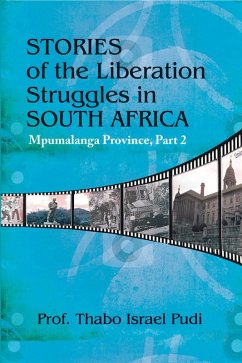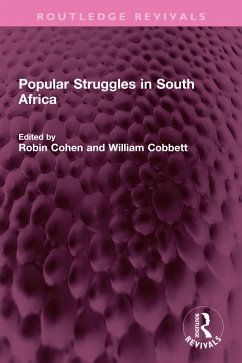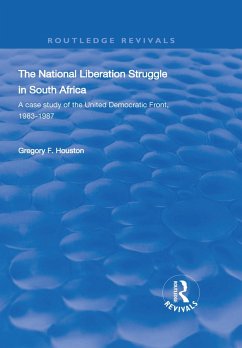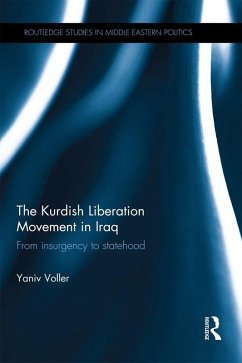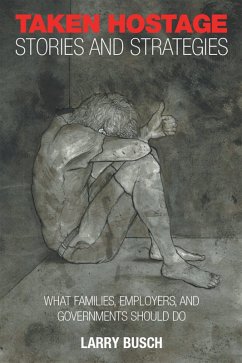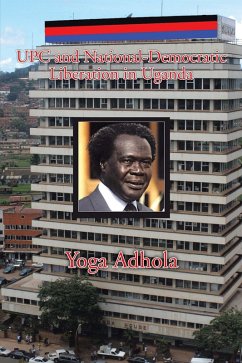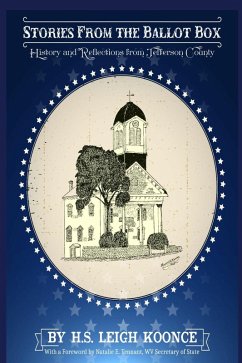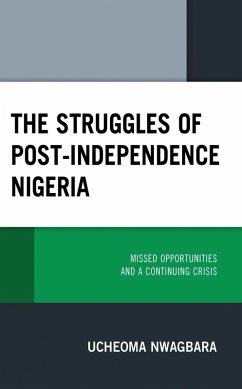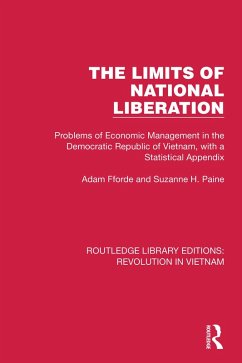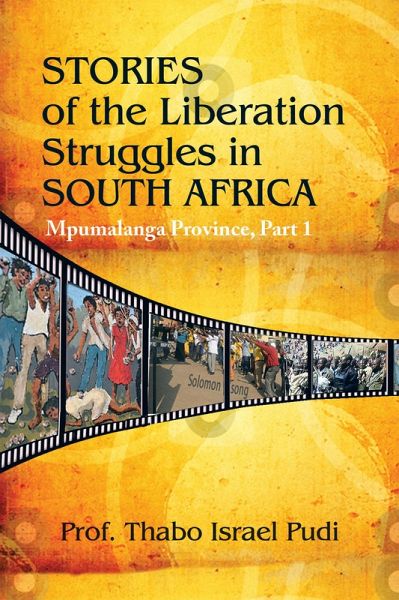
Stories of the Liberation Struggles in South Africa (eBook, ePUB)
Mpumalanga Province
Versandkostenfrei!
Sofort per Download lieferbar
2,99 €
inkl. MwSt.
Weitere Ausgaben:

PAYBACK Punkte
1 °P sammeln!
The Stories of the Liberation Struggles in South Africa: Mpumalanga Province is a book about the struggles of the South African people (black, Indian, and colored) when they defied and resisted oppression and apartheid from the white South African government in the pre-1994 era. To ensure dominance over other race groups and the entrenchment of oppression and apartheid, the white South African government applied many tactics. These included dividing people along racial lines, such as, securing separate living areas for whites, black, Cloureds, and Indians. The government further divided the bl...
The Stories of the Liberation Struggles in South Africa: Mpumalanga Province is a book about the struggles of the South African people (black, Indian, and colored) when they defied and resisted oppression and apartheid from the white South African government in the pre-1994 era. To ensure dominance over other race groups and the entrenchment of oppression and apartheid, the white South African government applied many tactics. These included dividing people along racial lines, such as, securing separate living areas for whites, black, Cloureds, and Indians. The government further divided the black people into ethnic groups such as Zulu, Xhosa, and Pedi. This was to ensure that the black people were confined to what was called homelands or Bantustans. The apartheid government also promulgated laws that were aimed at discriminating and undermining the freedom and integrity of the black people, such as The Group Areas Act and others. There was also state of emergencies, which were often declared to ensure that the iron fist of apartheid and oppression remained clenched. During these state of emergencies, many black people died, were maimed, or brutally injured, and some also disappeared forever. When the apartheid government went further to enforce that the Afrikaans language should be the official language at all schools, then they found that they have committed the greatest error. The students opposed it. Violence erupted from the Soweto schools, and it spread to all other township. The stories in Part 1 and Part 2 of the books are about the liberation stories of the struggles in South Africa, Mpumalanga province, which touches amongst others, on the toils, the trials, the troubles, and the perils that the youths, especially, had to undergo during that time. Many youths skipped the country to do military training in order to force the apartheid government to go to the negotiation table for freedom and democracy for all; others waged battles within the country. At many instances, they fought against the might of the South African police armed with rubber bullet, teargas, and live ammunition whilst only armed with stones and dustbin lid as their shields. Many were arrested. Many died in detention. Many died, and there was funeral after funeral when the youths went out to bury their dead. Sometimes when they return from the funerals, they would suffer other casualties. This was a vicious circle of funeral after funeral, but the youths (called the young lions) never gave up. There are, of course, other instances when the youth fought the establishment of homelands or the third force elements (impimpis or askaris), which worked with the system. There are, of course, other cases of youths who also fought with local business people because these were perceived to be working with their enemies (the white government). Sad to say, the stories herein also reveal some orgies of the youths fighting and killing people (especially the elderly) who were perceived to be witches. All these stories are true experiences from the contributors.
Dieser Download kann aus rechtlichen Gründen nur mit Rechnungsadresse in A, D ausgeliefert werden.




